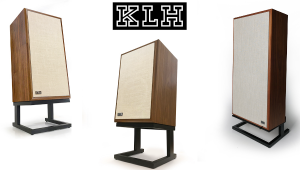Mick Box Is Very ’Umble About Uriah Heep’s Sonic Legacy

The British band was named after Uriah Heep, the obsequious lawyer in Charles Dickens’ 1850 novel, David Copperfield. Heep was a sycophantic character who often referred to his own “’umbleness,” something that was acknowledged with a wink in the title of Heep’s 1970 debut album, ...Very ’Eavy ...Very ’Umble. That album was actually renamed here in the States as a self-titled effort that also sported quite different cover art. “The original cover in England was of our singer David Byron’s face full of cobwebs,” confirms Heep’s co-founding guitarist Mick Box, “but they felt that was too scary for over in America, for some reason — so they changed it to some kind of drawn dragon!” (Herewith, a quick toast to the days-gone-by whims of those ever-thoughtful record-company execs...)
Fast-forward to the present day, wherein a full-bore Uriah Heep reissue series is now underway, having commenced late last year with the two-CD set Your Turn to Remember: The Definitive Anthology 1970–1990 (BMG/Sanctuary) and followed by the band’s first two albums — namely, the aforementioned ’Umble and 1971’s Salisbury — with scores of bonus tracks to boot. As the Anthology’s chief compiler, Box made sure longtime FM staples like “Gypsy,” “Easy Livin’,” “Stealin’,” and “Lady in Black” resided alongside latter-day crunchers like “It Ain’t Easy,” “The Other Side of Midnight,” and “Voice on My TV” in their proper chronological sequencing.
“It’s like doing a setlist — you can’t just put 15 songs together without looking at the keys the songs are in, what the mood is, and where it takes you,” Box explains. “I spent some time doing that — taking things from a major to a minor. You wouldn’t necessarily know I was doing that, but the lift of the major makes you feel that lift, and you then feel good about it. So the keys were very important for me, especially on the early stuff. That way, it’s not so individual, and the tracks feel like they all belong together.”
I got on the horn across the Pond with Box, 69, to discuss the ins and outs of putting together the Anthology, how the band recorded an actual tea kettle onto the classic 1972 track “The Wizard,” his thoughts on streaming, and the band’s future plans. Throughout it all, Box comes across as quite the ’umble man indeed.
Mike Mettler: One of the things that helped set Uriah Heep apart from the rock-band boom of the early-’70s was how you brought a Hammond organ into the group. That took your sound to a whole other level.
Mick Box: Yeah, most definitely. Before we became Uriah, we were a four-piece band in 1967 known as Spice, even before we added the keyboards. At the time, I was a massive fan of Vanilla Fudge! Who wouldn’t be? (laughs)
The Hammond organ seemed to fit every nuance of our music because it could be romantic, it could be aggressive, it could be loud, or soft. It could be everything you wanted it to be, so it was the perfect instrument to add the flavor to what we do.
Mettler: Did that give you more space to do other things with your own guitarwork in the arrangements, rather than just carrying the rhythmic load?
Box: Yeah, I could throw in some extra stuff while still having the foundation there for everything else to happen. So, they speak very well together — especially with the wah-wah guitar, because those frequencies just go very well with the Hammond organ.
Mettler: And, in your own way, you were taking the lead from Jeff Beck’s template.
Box: Jeff Beck is my favorite guitarist, but I could never go near what he does. (chuckles) I’ve never sat down to work out anything he’s played — I just treat him purely as a fan.
Mettler: I’m sure you must have crossed paths with Jeff at some point over the years, right?
Box: Very rarely! I think we did a German festival with Beck Bogert Appice back then [circa 1972], and I have seen him live a few times. The last time I saw him was at the Classic Rock Magazine Awards in London [in 2009].
Mettler: Something else unique about Uriah Heep is all those great harmonies we got to hear on a lot of your early material.
Box: I think that was the thing that stood us apart from all the other bands. It was our own identity, to be honest, when we came out and were a part of The Big Four with Led Zeppelin, Black Sabbath, and Deep Purple.
And I think we were the first band to bring harmony into our music and use it as another instrument. All the harmony work in those bands in the late-’60s was just to sing along in three-part harmony to the chorus, wasn’t it? But with us, in “Gypsy,” for instance [the first track on Uriah Heep’s aforementioned debut album], we already had the band harmonies that kind of became our trademark. Queen has been very vocal about how we’ve influenced them, along with many other bands.
Mettler: What gave you the idea to do harmonies in that way? Did it come out of something you were listening to, or did it come from your own thought process?
Box: I think it’s because we had five strong singers. It was just born out of that, really. And then we took that a little step further, I might say, a la Three Dog Night — that step-harmony [sings, “la-la-la-la”]. Our first American tour [in 1971] was with Three Dog Night, actually, and I think a lot of what they did rubbed off on us too. They had the three lead vocalists — Danny [Hutton], Cory [Wells], and Chuck [Negron] — and they were fantastic at doing that step-harmony stuff, which we were doing as well.
It was brilliant to see them do that. I think our first show in America was in Indianapolis [on March 26, 1971, at the State Fairgrounds Coliseum] in front of 10,000 people, and previous to that, I think we played to 500 people in a club! (chuckles)
Mettler: That must have been a different vibe, playing for an American audience.
Box: It was a totally different vibe, and it gave us the stagecraft to handle large audiences too. You learned that very quickly.
It was an exciting time back in the early-’70s with all that creativity happening, you know? I think a lot of that was born out of the industry giving musicians more support in ways — for instance, if you signed an album deal, you signed for seven or eight albums. You grew with your music and the label, and the label grew with you.
Mettler: You needed that time to grow as artists. And obviously, a good example of those harmonies we were just talking about can be found in “Easy Livin’,” which is probably the track where many people find their way into the Heep universe.
Box: Yeah, it was one of those songs that took us onto the world stage — we now play in 60 countries, so “Easy Livin’” is probably responsible for a lot of that! (chuckles) It was from the Demons and Wizards album (1972), and we were lyrically going into the fantasy world. It sort of connected us with everyone, you know?
Mettler: It was out at the right time — and having Roger Dean artwork on it didn’t hurt either.
Box: With Roger Dean, you had the complete package — with the music and the artwork being totally connected. It was a lovely cover.
Mettler: And by the time we get to Side 2 and the one-two punch of the last two songs on there, “Paradise” and “The Spell”...
Box: It’s epic, is all I can say. When I hear that, I really enjoy it. It’s organic. It’s very real, and it just sounds good. And it makes you feel good!
Mettler: And then you’ve got that tea kettle going off during “The Wizard,” which I still love hearing whenever I put that song on.
Box: Yeah, that kettle is amazing, isn’t it? We had to do it three or four times, and then varispeeded it to the top C. And then we put it on there, and that was it. These days, you’d just get it with a keyboard note, wouldn’t you? But in those days, it was very experimental, so if you wanted a certain sound, you’d work at it and fabricate it.
Mettler: I wonder if a modern listener not familiar with “The Wizard” might actually think that’s a sample of some kind.
Box: Of course they do! But a lot of work went into it! (laughs)
Mettler: And you couldn’t let it go to waste, right? You served that tea as soon as it was ready.
Box: Oh, absolutely! And everyone who listens to that song now has to brew a strong cup of tea to go with it! (both laugh heartily) I’m with you all the way there!
Mettler: I like how the songs on Anthology also have another life onstage, even all the way back to that first live album of yours from 1973, Uriah Heep Live.
Box: People often say to me that’s their favorite live album ever — probably because it was a live album! Since then, people record a “live” album, but then they take it into the studio and make it into a studio album, which is madness! And that live album, from the first note until the last, is exactly how it was played that night.
Mettler: I applaud that. I was just looking at Spotify, and I saw that “Easy Livin’” has 4.6 million listens, “Lady in Black” has 3.4 million, and “Stealin’” has 1.2 million. The modern listening audience is quite aware of Uriah Heep, without a doubt. How do you, as an artist, feel about streaming?
Box: You know, I could scream and shout about it because it’s taking away a lot of revenue I was hoping to pass along to all of my children, but there’s no use moaning about it, because it’s not going away. It’s where the business has gone, so what I think you have to do is embrace it. You have to find your way of embracing it that works for you, because it’s not going away.
It’s like with the record companies when Napster first came out — they ultimately found out there were thousands of Napsters out there with free downloads, and you couldn’t police that. You couldn’t win, so that’s a prime example of wasted energy. You’ve got to live in the real world. It’s happening, and there’s nothing we can do about it. So embrace it.
Mettler: They’re “streamin’ when they shoulda been buyin’,” to borrow a line there...
Box: (laughs heartily) We should put that line into the song — then we’d get a lot more hits! (both laugh)
Mettler: I guess we also have to start looking ahead at a 50-year celebration at some point, which would be sometime in 2019, I think. Are you looking at that idea yet, Mick?
Box: Oh no, I’ve just got my head down, mate! (laughs) I try not to look at those things. They’re millstones around your neck in the end, I think, so I just look to the next tour and the next album, and if I’ve got my health and I can do it, then fantastic.
Mettler: Well, here’s hoping you get there. By the way, I also think “Voice on My TV” [from 1989’s Raging Silence], is a nice capper at the end of the Anthology. It the perfect bookend for where “Gypsy” started everything off. I think we have to call this Anthology officially Part 1 now.
Box: BMG doesn’t own the rest of our catalog stuff, but never mind — we’ll find a way to put out Part 2! (laughs) Putting stuff together like this is a complete joy. I drove around in my car listening to all the songs on the Anthology — and I’ve never really gone back and listened to our old albums all that much — but it was like, “This is fantastic! This is what it’s all about. This is your life, Mick.” (chuckles) And I was smiling all the way through, so I think it was a good sign.





























































